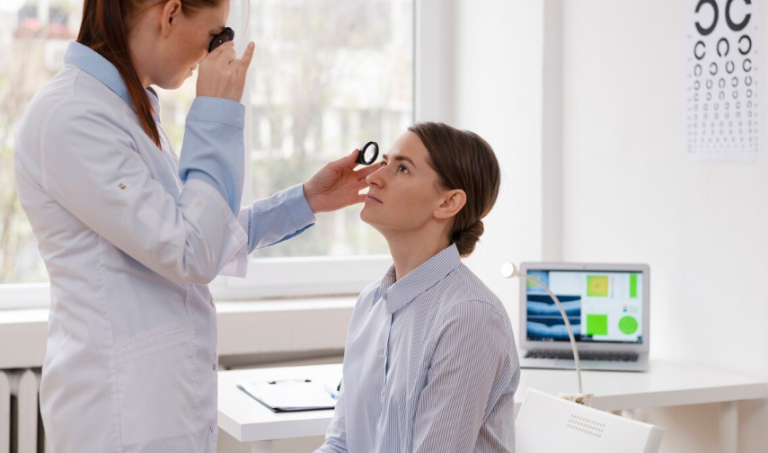Expert Eye Care with Dr. Natasha Lim: Leading Ophthalmologist in Singapore
“👁️ Need expert eye care? Trust Dr. Natasha Lim, a leading 🔝 Ophthalmologist in Singapore! Providing exceptional 👓 service with care! #EyeHealth.Our eyes are among the most vital and delicate organs in the human body, allowing us to experience the world in vivid color, shape, and motion. Yet, despite their importance, many people take their eye health for granted until problems arise. This is where ophthalmologists come in — specialized medical doctors who focus on diagnosing, treating, and preventing a wide range of eye diseases and conditions. Professionals like Dr Natasha Lim exemplify the expertise and dedication required in this field. Understanding the role of ophthalmologists and the significance of eye care is essential for maintaining lifelong vision and overall well-being.
The Role of an Ophthalmologist
An ophthalmologist is a medical doctor (MD) or doctor of osteopathic medicine (DO) who has undergone years of education and specialized training to diagnose and treat eye disorders. Unlike optometrists or opticians, ophthalmologists can perform eye surgeries and provide comprehensive medical care for the eyes, including the management of complex diseases such as glaucoma, cataracts, macular degeneration, and diabetic retinopathy. Their training typically includes four years of medical school, followed by a residency in ophthalmology, which gives them expertise in both the medical and surgical aspects of eye care.
While many people associate eye care solely with vision correction, such as prescribing glasses or contact lenses, ophthalmologists offer much more. They can detect signs of systemic diseases that manifest in the eyes, such as diabetes and hypertension. This makes routine visits to an ophthalmologist not just about vision, but also about overall health.
Importance of Regular Eye Examinations
One of the key pillars of ophthalmologist eye care is preventive screening. Many eye diseases are asymptomatic in their early stages, meaning individuals may not notice any problems until significant damage has occurred. For instance, glaucoma, often called the “silent thief of sight,” can slowly damage the optic nerve without causing noticeable symptoms until vision loss becomes irreversible. Regular eye exams allow ophthalmologists to detect such conditions early, providing an opportunity for timely intervention that can preserve sight.

Adults are generally advised to have comprehensive eye exams every one to two years, depending on their age, health status, and risk factors. Children should also have eye screenings to ensure normal visual development and prevent issues such as lazy eye (amblyopia) or crossed eyes (strabismus). For those with underlying medical conditions like diabetes, more frequent eye exams may be necessary, as these patients are at increased risk of developing sight-threatening complications.
Common Eye Conditions Managed by Ophthalmologists
Ophthalmologists handle a wide spectrum of eye diseases. Cataracts, a clouding of the natural lens inside the eye, are one of the most common causes of vision impairment, particularly in older adults. Fortunately, modern cataract surgery is highly effective, and ophthalmologists are skilled in performing this procedure with remarkable precision.
Another common condition is age-related macular degeneration (AMD), which affects the central part of the retina and can lead to severe vision loss. Although AMD cannot be cured, ophthalmologists can recommend treatments and lifestyle changes to slow its progression. Similarly, diabetic retinopathy — a complication of diabetes — requires careful monitoring and sometimes laser treatments or injections to prevent vision deterioration.
Ophthalmologists also manage corneal diseases, eye infections, inflammatory conditions, and injuries. Their ability to perform surgical procedures, such as retinal repair, corneal transplants, or corrective surgeries like LASIK, makes them uniquely positioned to address both routine and complex eye problems.
The Intersection of Technology and Eye Care
Modern ophthalmology is closely intertwined with technological advancements. Diagnostic tools such as optical coherence tomography (OCT), fundus photography, and visual field testing allow ophthalmologists to visualize the eye’s structures in incredible detail. These tools help in diagnosing conditions earlier and tracking disease progression with great precision.
Moreover, surgical innovations — including laser-assisted cataract surgery, minimally invasive glaucoma procedures, and advanced retinal surgeries — have transformed patient outcomes. Technology has not only improved the accuracy and safety of ophthalmic procedures but has also enhanced patient comfort and recovery times. Staying informed about these advancements is part of an ophthalmologist’s ongoing commitment to providing the highest quality of care.
Promoting Eye Health Through Lifestyle Choices
While ophthalmologists play a critical role in treating eye diseases, patients themselves have a vital role in maintaining eye health through daily habits and lifestyle choices. Protecting the eyes from excessive ultraviolet (UV) exposure by wearing sunglasses, avoiding smoking (which increases the risk of cataracts and macular degeneration), managing systemic conditions like diabetes and hypertension, and following a diet rich in antioxidants and omega-3 fatty acids all contribute to better eye health.
Ophthalmologists often educate patients about the importance of these factors during consultations. For example, they might advise individuals who spend long hours on digital devices to follow the 20-20-20 rule: every 20 minutes, look at something 20 feet away for 20 seconds, to reduce eye strain. In cases where protective eyewear is needed, such as for sports or certain occupations, ophthalmologists can guide patients on choosing appropriate gear to prevent injuries.
Conclusion
Ophthalmologist eye care is far more than just prescribing glasses or checking vision. These highly trained medical professionals provide essential services that help prevent, detect, and treat a vast range of eye conditions, safeguarding one of our most precious senses. Regular eye examinations, timely interventions, and patient education are critical components of their work, helping to maintain not just vision but overall health.
As we age, our risk of developing eye diseases increases, making it all the more important to prioritize routine visits to an ophthalmologist. By combining advanced technology, surgical expertise, and personalized care, ophthalmologists play an indispensable role in ensuring that patients can enjoy clear, healthy vision throughout their lives. Ultimately, good eye care is not just the responsibility of the doctor but a partnership between the patient and the ophthalmologist — a collaboration that protects sight and enhances quality of life for years to come.







